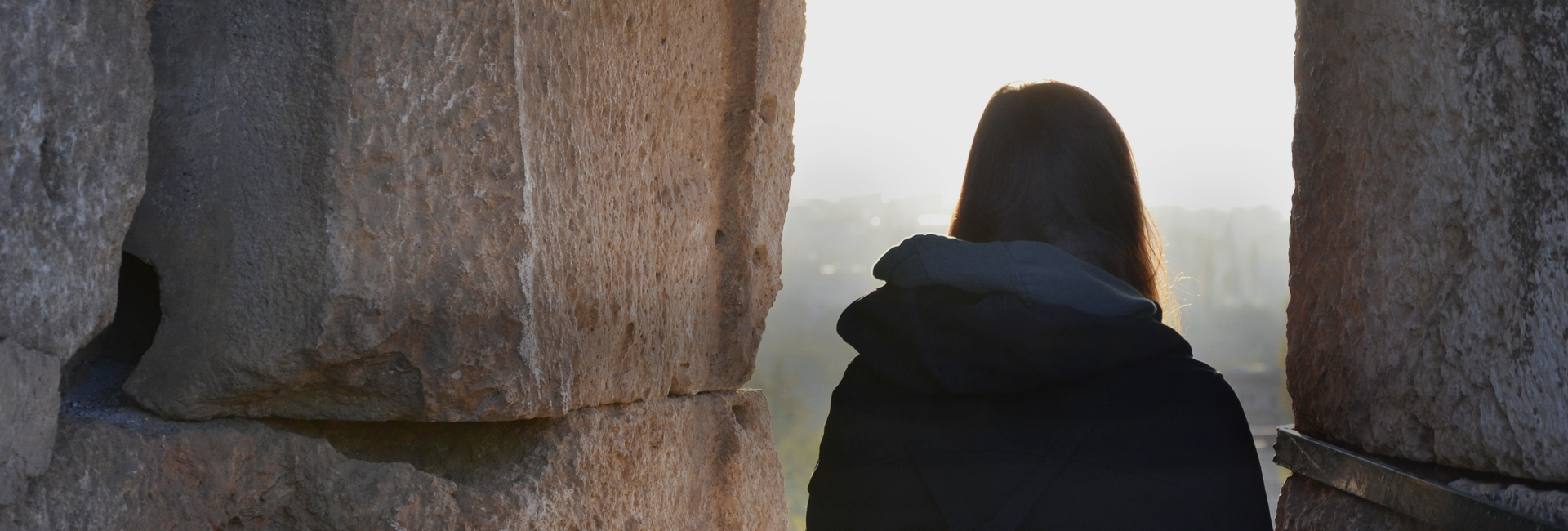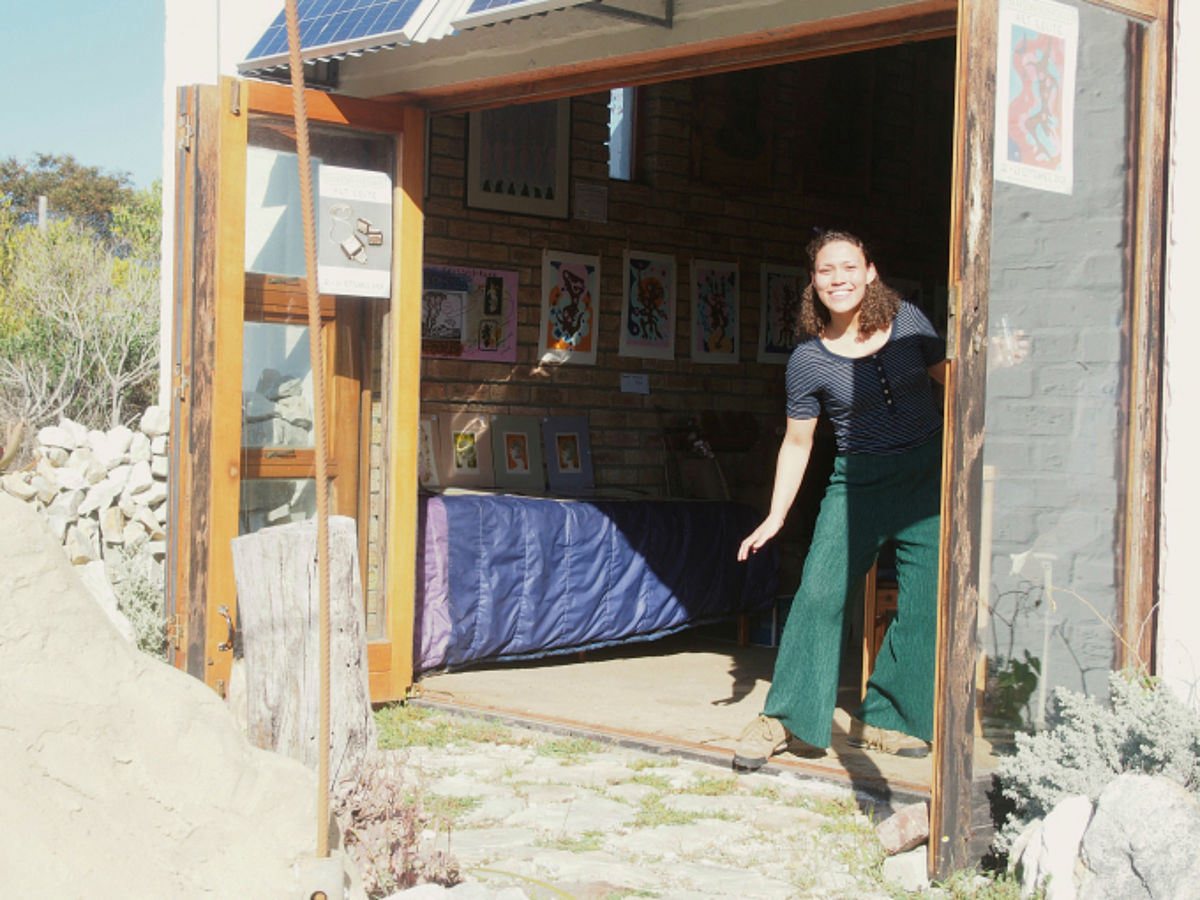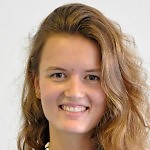
Weltweit erlebt
10 Freiwillige weltweit. Täglich neue Eindrücke und Erlebnisse. Kleine und große Herausforderungen. Erfahrungen für das ganze Leben – all das ist das Ökumenische FreiwilligenProgramm der Evangelischen Mission in Solidarität (EMS)

Die hungernden Kinder in Afrika... Teil 2
Englische Originalversion des Interviews mit Ulriche
Hallo ihr Lieben, hier kommt noch die versprochene englische Originalversion des Interviews mit Ulriche. Viel Spaß!
1. "There is no water in Africa."
Do you have enough water available?
Yes we do.
Is there enough water in your home country?
There is enough water in our home country even though we have a water crisis. Our government has assured us that we won't run out of water by putting measures in place to combat our water crisis.
Offizielle Zahlen: unabhängig vom Einkommen werden jedem südafrikanischen Haushalt 6000 Liter Wasser pro Monat, also ca. 200 Liter pro Tag zugesichert.
2. "Children are suffering from hunger in Africa"
Are you suffering hunger?
No I am not.
Are you able to eat a balanced diet?
Yes, we have access to a variety of foods. Some food products are expensive and it is therefore not always easy to sustain a healthy diet but we are able to eat a balanced diet.
Are there people in your environment that are suffering from hunger?
Yes there are, especially in poorer communities where their staple foods are often not balanced but based on affordability. There is also a large population of South Africans who do not have the means to buy any food and live off the generosity of others by giving them money or maybe something to eat.
Offizielle Zahlen: 7,4 Millionen Menschen (ca. 13,2% der Südafrikaner*innen) haben 2016 in Südafrika Hunger erfahren (Quelle: Statistics South Africa General Household)
3. "You get infected with bad diseases in Africa."
Are there people in your environment that are infected by contagious, chronical diseases?
There are people with chronical diseases but not so much contagious.
4. "Africa is dangerous"
Do you feel safe in your environment?
Not always but most of the time my immediate community (where my home is situated) offers me safety.
Do you have friends who have been robbed, hurt or have experienced any other dangerous experience?
Yes I have.
5. Which language(s) do you speak?
English and Afrikaans.
Offizielle Zahlen: in Südafrika gibt es 11 anerkannte Amtssprachen: Zulu (23% als Muttersprache), isiXhosa (16%), Afrikaans (13,5%), Englisch (9,6%), 37% der Bevölkerung sprechen Süd-Ndebele, Nord-Sotho, Sesotho, Setswana, Swati, Tshivenda und Tsonga. Fast alle Südafrikaner*innen wachsen zweisprachig auf.
6. Could you decribe a normal day in your life, please?
I am a fine art student. Most of my days start with waking up around 8am, driving to our campus in town and spending the day there working on projects. In the evenings, we often go for drinks or exhibition openings. Most of the times I come home around 8pm and prepare for the next day of campus.
7. Which topics are you talking about during supper?
My family is not as strict when it comes to meal time traditions. A lot of the time we sit in the lounge and so it is usually just quick conversations about the day we had or perhaps the plans for the next day.
8. What´s your favourite food?
Spaghetti Bolonaise, South African bredies and curry combined with roti.
9. Which music do you like?
I enjoy jazz and alternative/indie music. Sometimes classical.
10. What's your favourite movie?
Under the Tuscan Sun, Pride and Prejudice
11. What's the most important public holiday for you?
Youth Day on the 16 June
12. What would you like to let people in Germany know about you?
Our lives are very much like yours in terms of relationships with the city and technology (perhaps not as efficient but we do have the means). The relationships between South Africans are very open - I am from Cape town and so the culture here is very easy going, we work hard and play hard. Going to the beach and meeting with friends for drinks or to visit art exhibitions in the evenings is a popular culture at the moment. Most Cape Townians know what it is like in Europe and lots have visited various countries. The life we live is a reflection of the West. We live a life with a western influence, however, our passion for "chill" and good times bring out the true South African (and maybe African) spirit within us all.
Besides the population of Cape Townians which are financially stable, there is a great number of citizens who are struggling and living in areas where it is not safe - gangs have taken over and the crime rate is really high - and others live in bad conditions in the townships where there are almost no systems put in place, sometimes not even running water in their homes. These areas are filled with the majority of people from Cape Town and is a reflection of systems during apartheid... specifically a system called the "Group Areas Act" put in place in 1950.
I live in a multi-faceted country, I am interested in our history and the way it has influenced our present. I am an art student and the dynamics between generations is what inspires my work and influences the way I live in Cape Town today.
13. How do you imagine Europe/Germany or what do you know about Europe/Germany?
I have been to Europe and the experiences I have had there inspire me in terms of ways of living. Europe has put greater emphasis on issues such as sustainability and climate change. People seem to be more aware of what they eat so that they can being healthier, physically, etc. I am fascinated by these priorities and it has inspired my ambition for the way I live. Cape Town has different priorities and it does not always have to do with individual well-being like eating healthily and sustainability and so it is good to visit Europe and see the other things we can focus on in our relationship with our planet and ourselves.
14. What do you wish for your future?
I hope that the divide between social classes can be narrowed. It is very sad to see so many people living in such harsh conditions whilst some have such a good quality of life. Something which is sadder is that those who are living better lives are oblivious to the bad conditions others are living in. I hope that more people get a fair chance to make a success out of their lives so that it is not only the rich getting richer but the poor also being able to live more comfortably.
Gibt es andere Fragen, die euch interessieren? Dann lasst es mich gerne wissen, ich frag nach!
Liebe Grüße aus dem immer kühler werdenden Südafrika:) Lena
